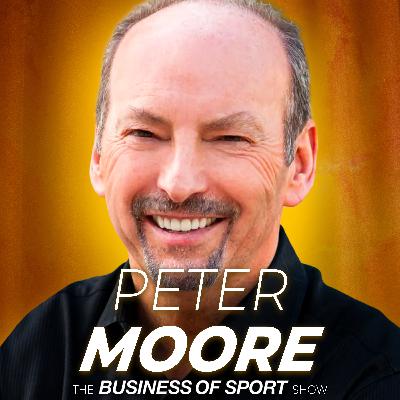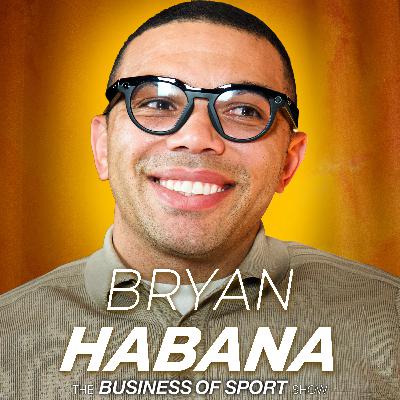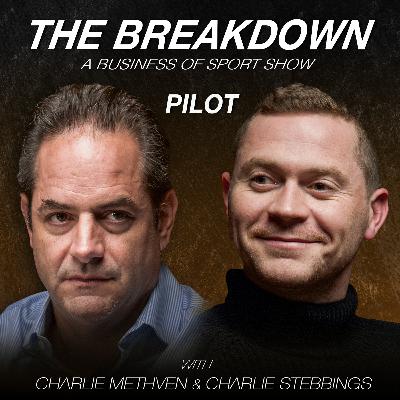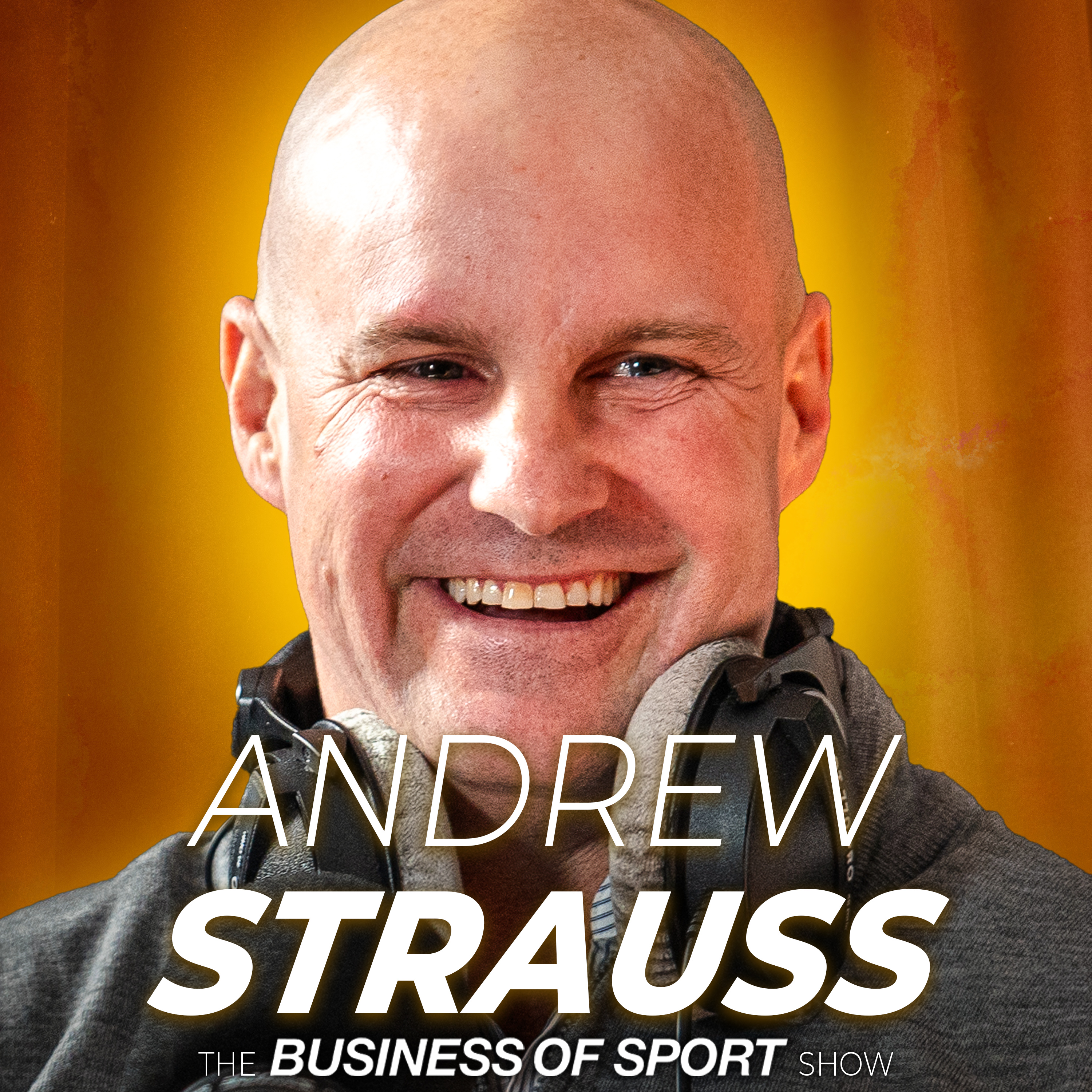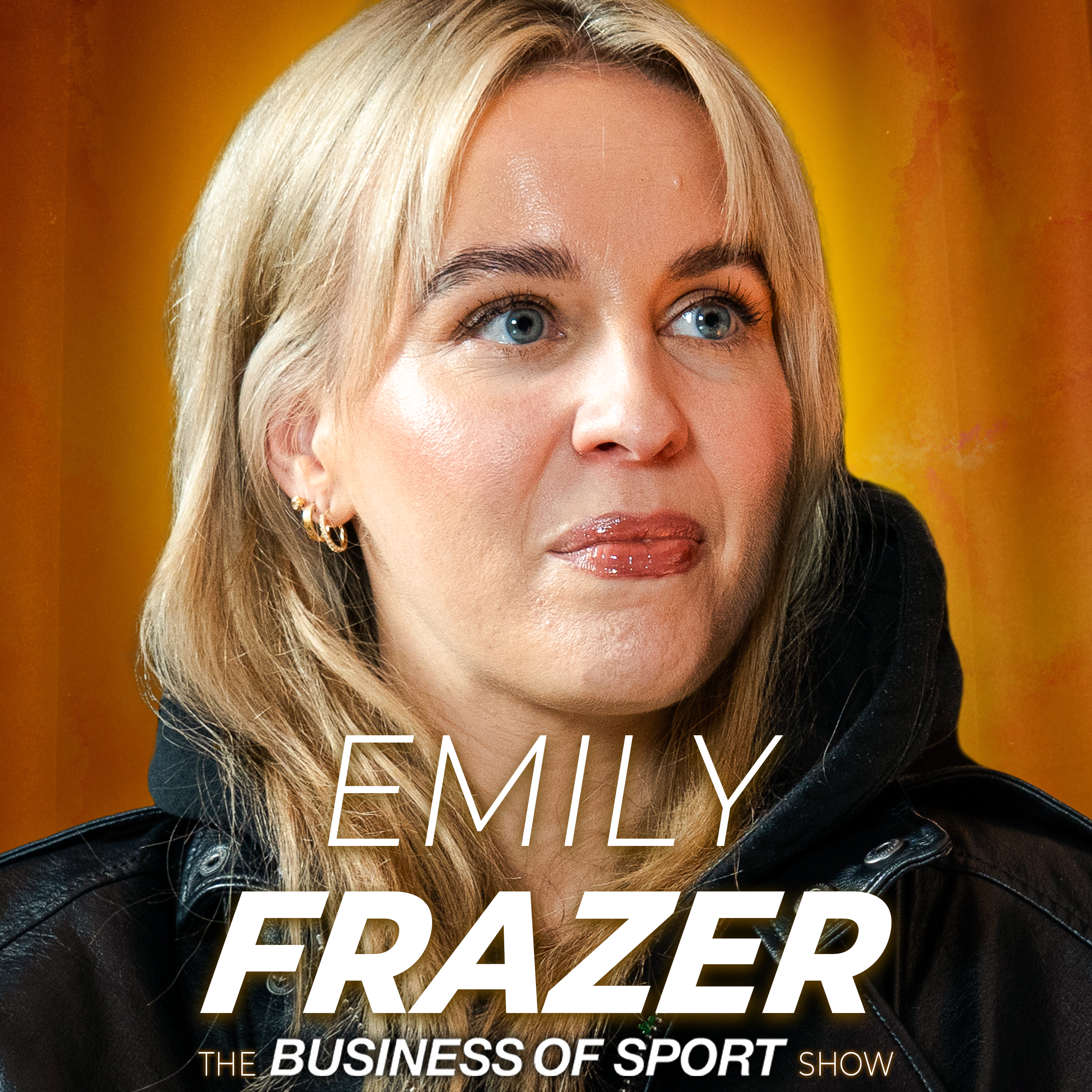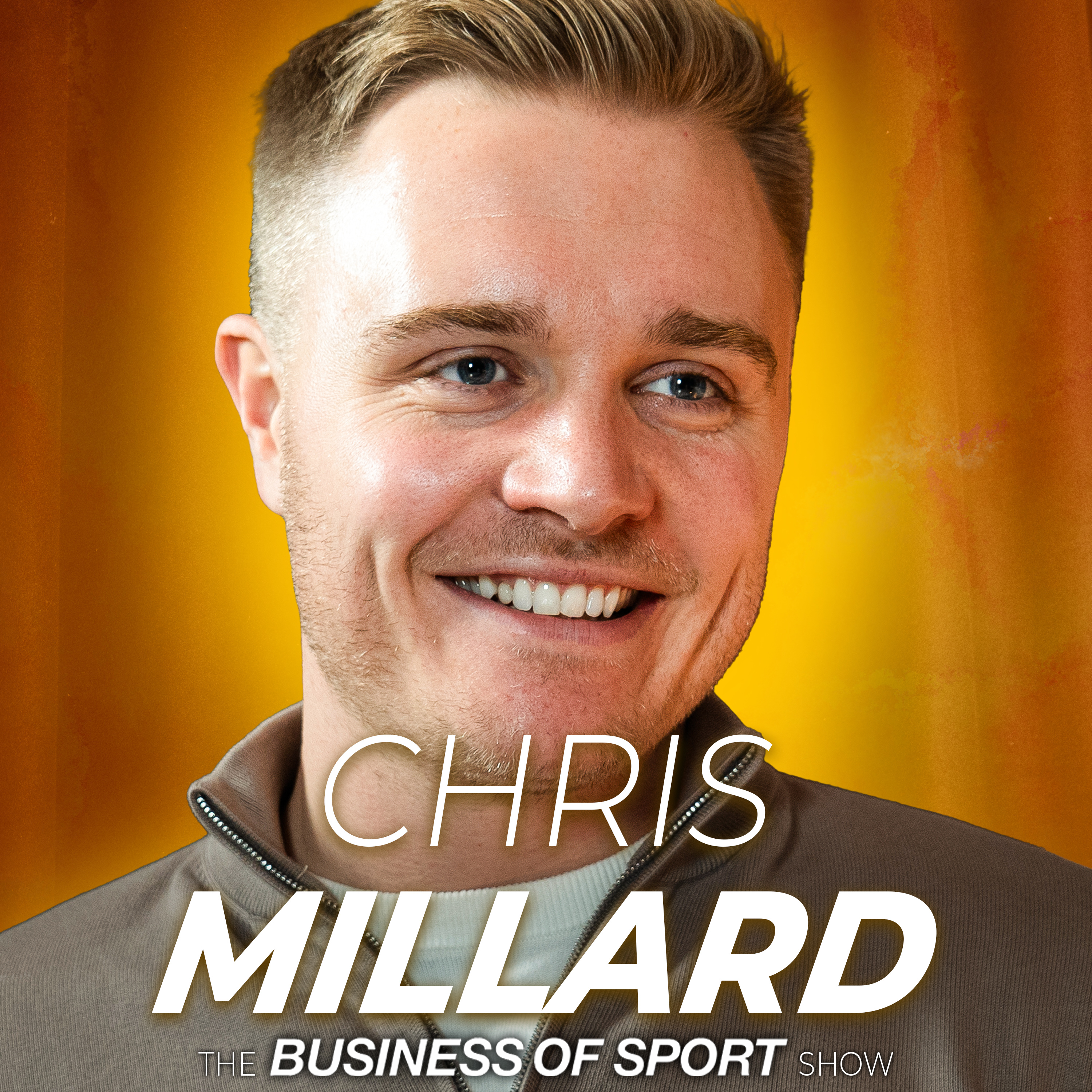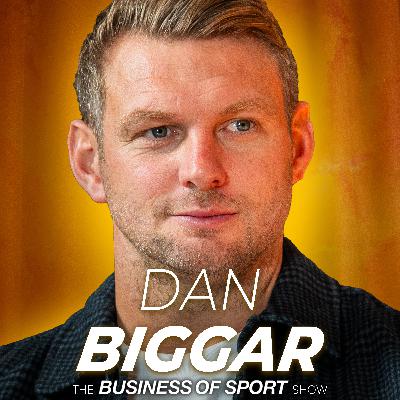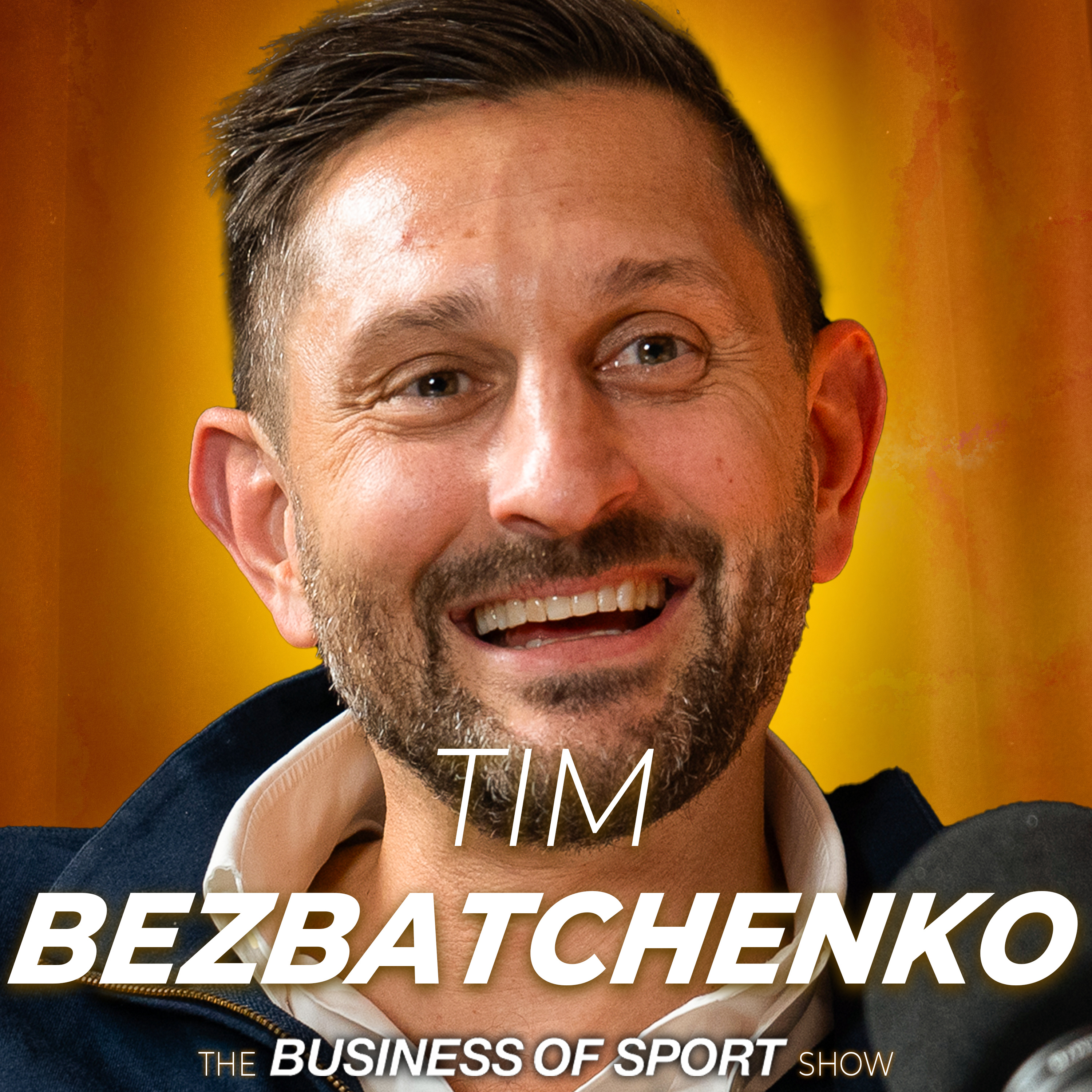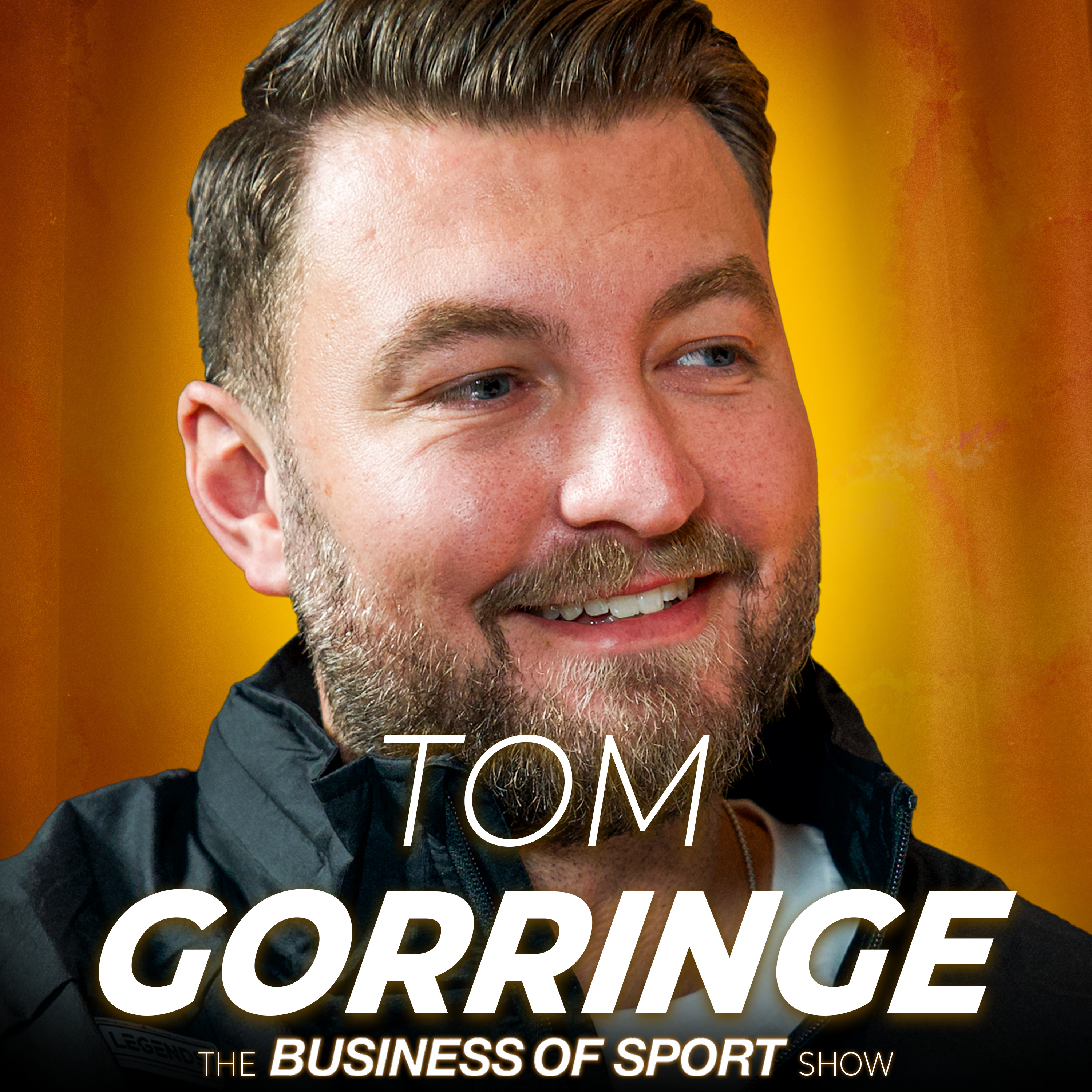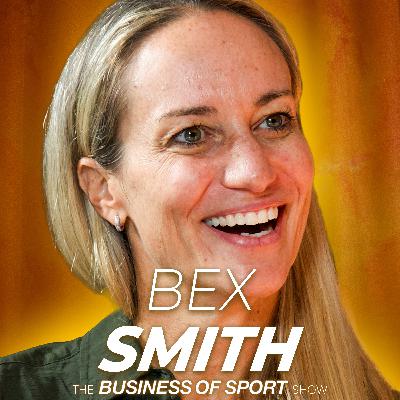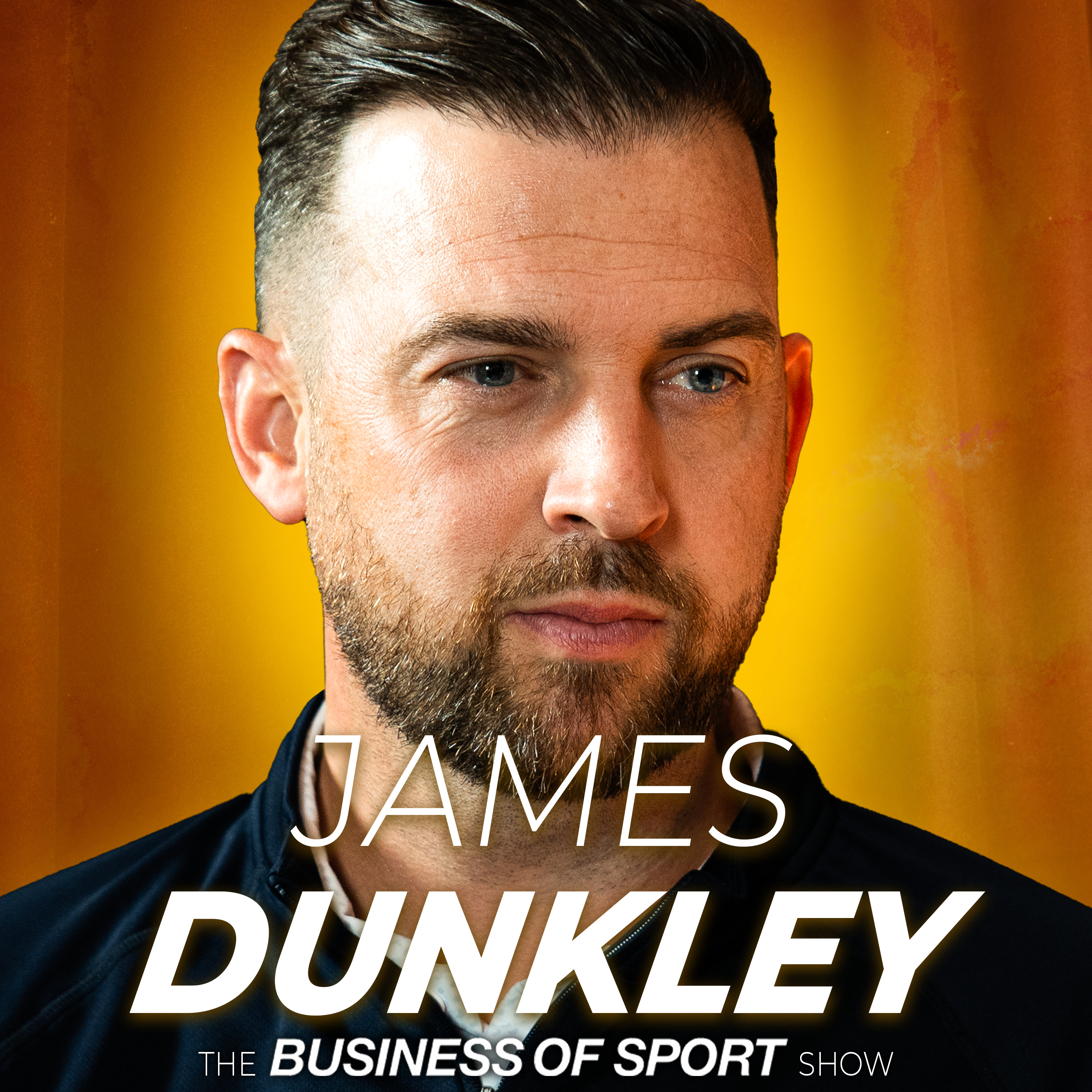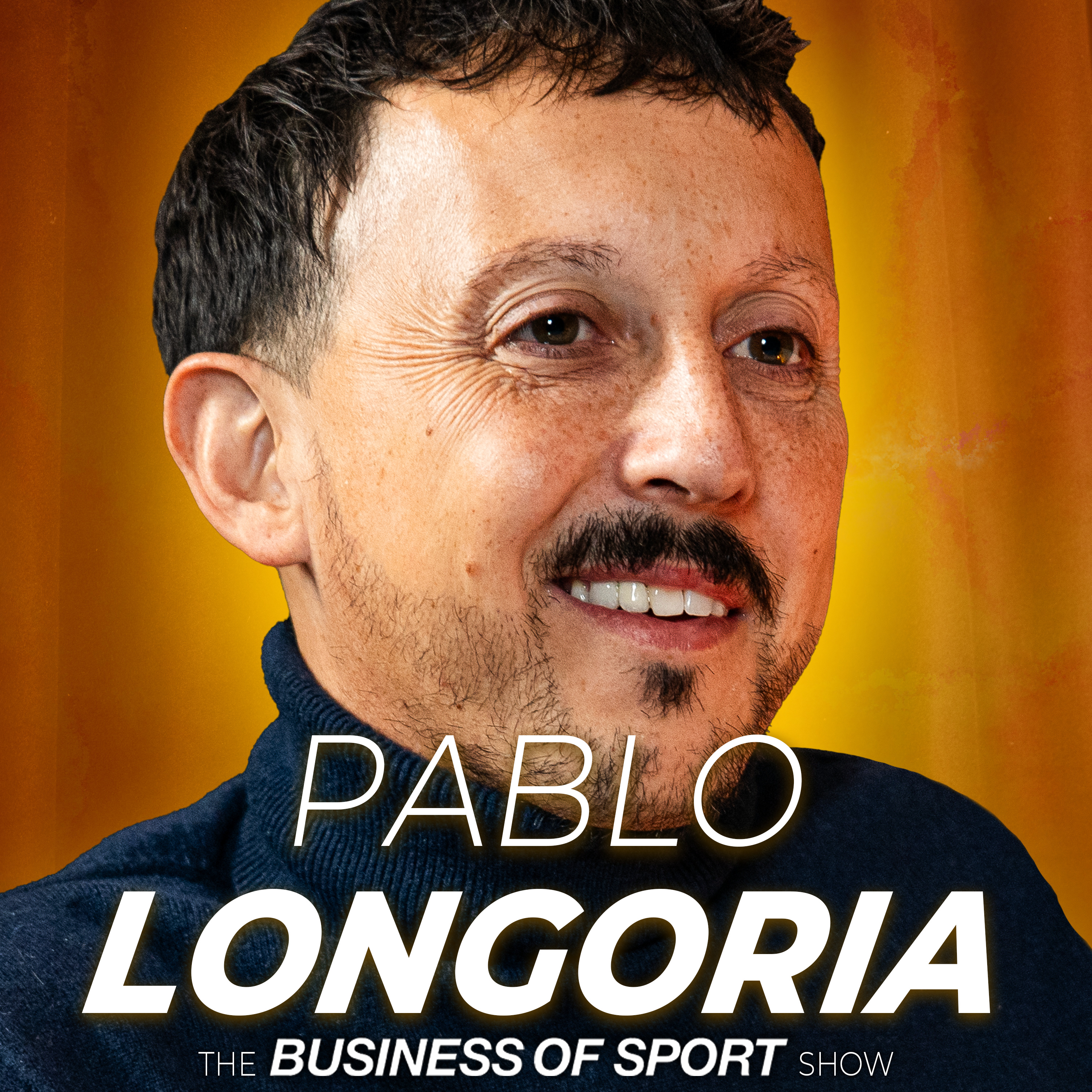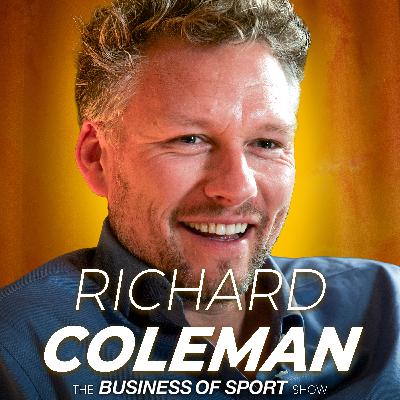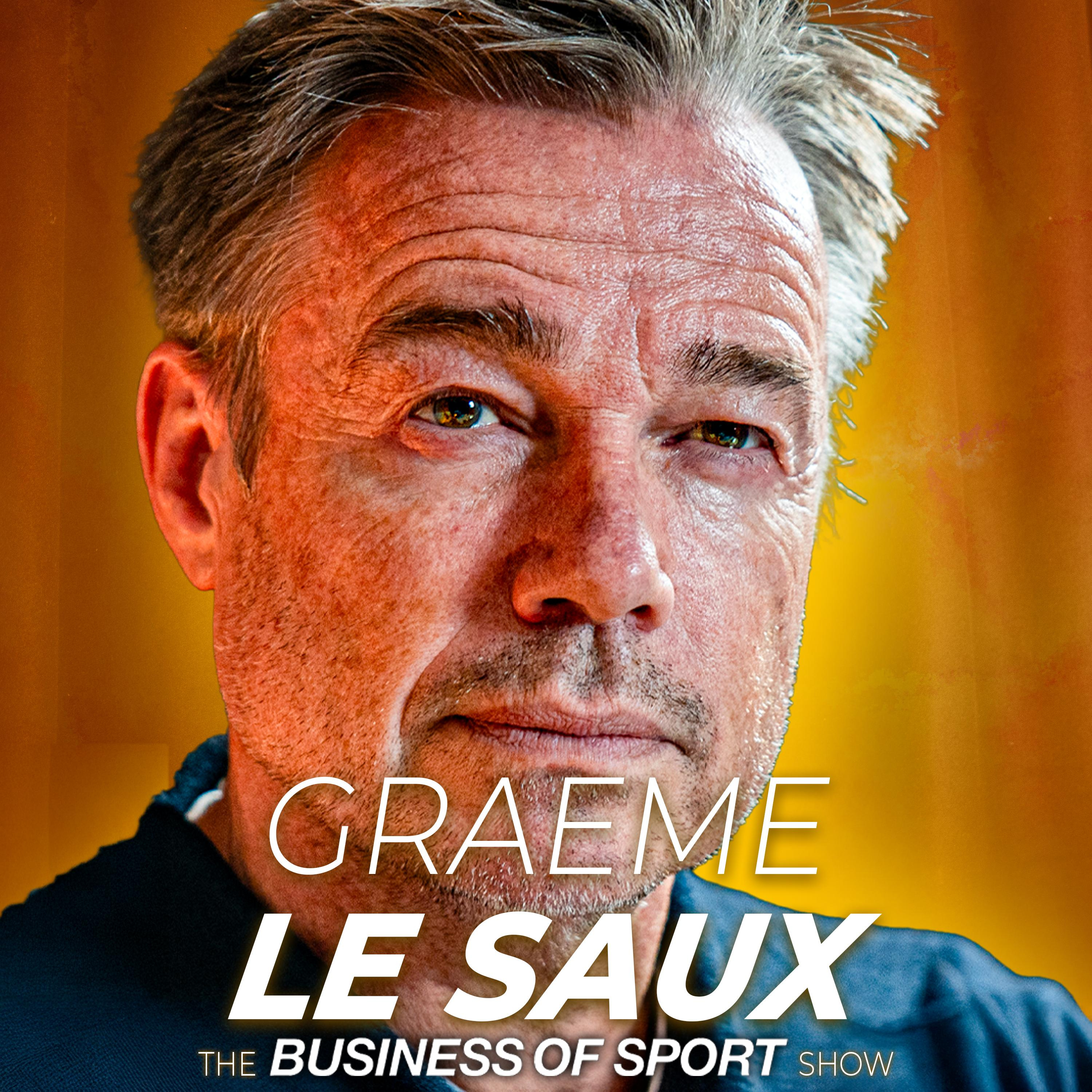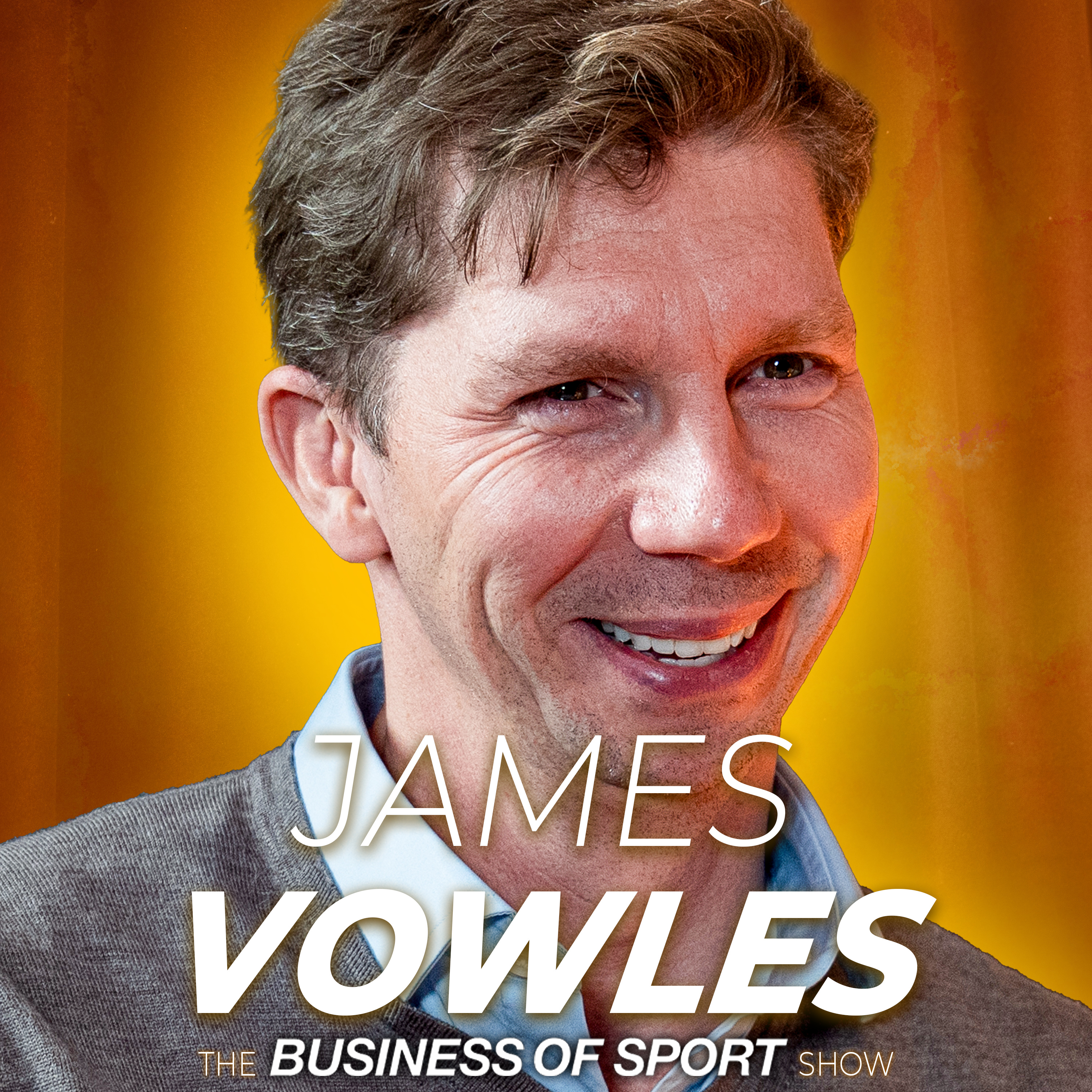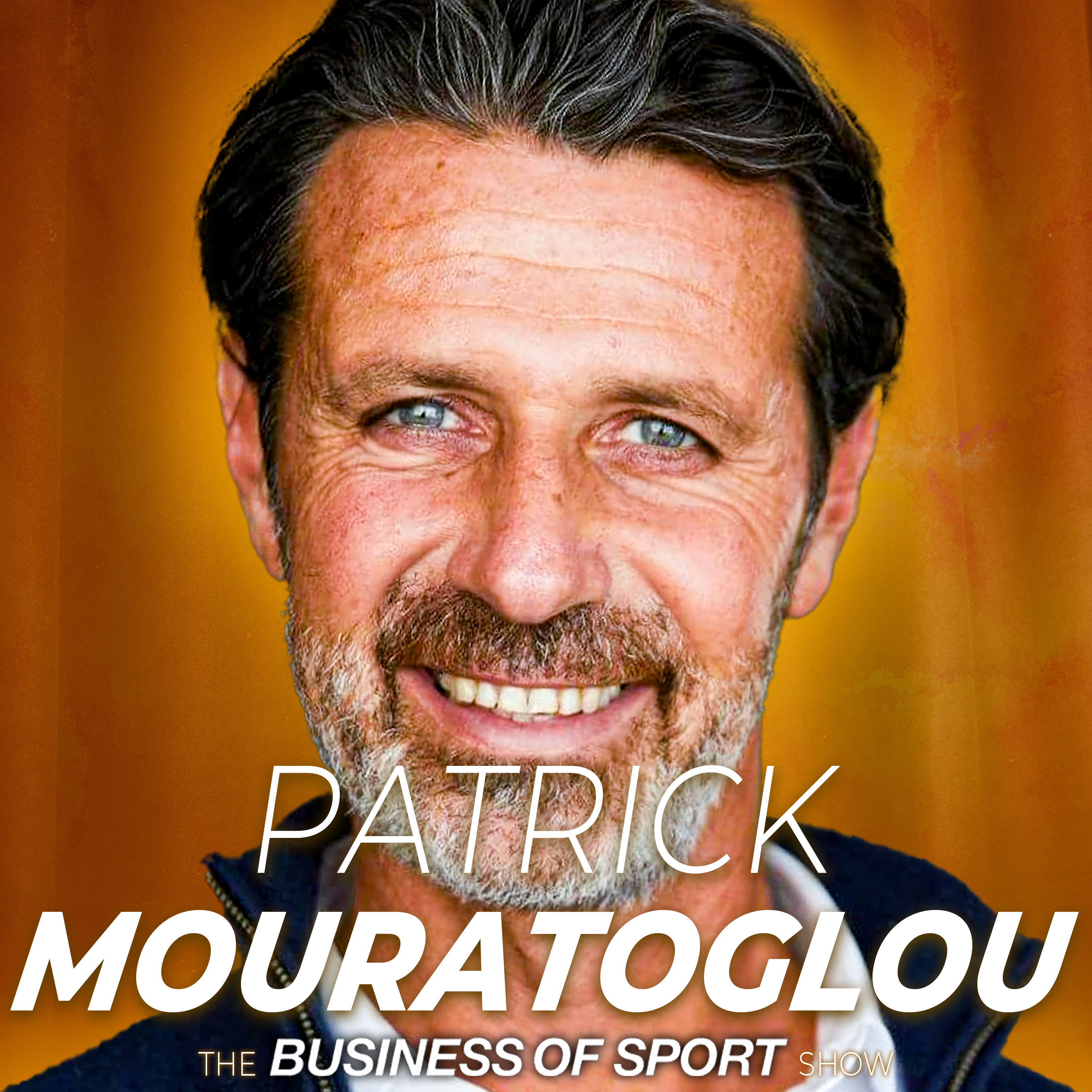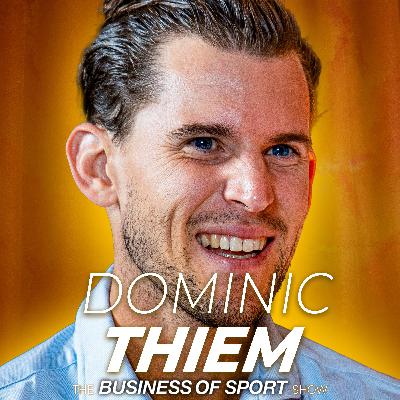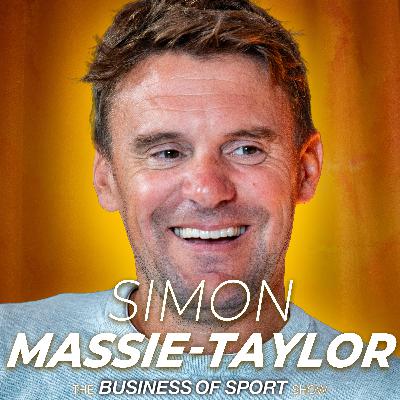Discover Business of Sport
Business of Sport

103 Episodes
Reverse
Today, we’re doing something a little different. Welcome to the Business of Sport: F1 Review.Over the past year, we’ve sat down with some of the most influential figures in Formula One. Team principals, world champions, and senior leaders shaping the sport behind the scenes. For this episode, we’ve handpicked the best moments from those conversations and brought them together into one definitive F1 compilation to enjoy over the festive period.Across the episode, we dive into what actually separates winning teams from the rest of the grid. From culture and leadership, to marginal gains, long-term strategy, and the human pressures that define life at the very top of motorsport.You’ll hear from voices including Nico Rosberg, Guenther Steiner, Claire Williams, James Vowles, and Zak Brown.----------------------------------------------------Timestamps:00:00 Intro00:42 James Vowles15:07 Guenther Steiner23:08 Zak Brown27:03 Claire Williams34:27 Nico Rosberg
Today, we’re going headfirst back into the world of the tier one football executive. Peter Moore is the former CEO of Liverpool, the man who oversaw the clubs return to the top of English and European football. Working alongside Jurgen Klopp from 2017-2020, this was one of the most effective ‘performance x business’ relationships in modern football. How do you win on the pitch and build value off it?Peter does not wrap his achievements in the on-field success experienced during his tenure; as you’ve just heard, it is the rediscovered affection and identity that fans found with the club that demonstrates a job well done. That’s quite an extraordinary stance for a CEO to have. Commercial maximisation and fan sentiment are hard to balance, and while there is always conflict over ticket prices or pre-season tours, we get something here which seems to recognise the importance of the club/fan relationship and asset value maximisation.An interesting time to be having this chat considering Liverpool’s recent struggles on the pitch and the Mo Salah situation, there is also plenty to go into around his role with Wrexham and the rise to prominence of football in the US. We’re delighted to welcome Peter to the Business of Sport.Timestamps:00:00 Intro06:10 Getting the Call to be Liverpool CEO09:15 "I Probably Wasn't A Good Fit For The Role"11:47 Not Involved in Football Transfers18:17 Google x Liverpool20:04 Liverpool is Immune to Winning & Losing22:23 Magic of Jurgen Klopp34:19 Funny Story: Did Liverpool Tap Up VVD?37:19 The Power of Star Players39:45 Mo Should’nt Have Said That46:53 Socialist Roots in a Capitalist Football Club52:44 Did Peter Get On With The Owners?54:13 Wrexham: Peter's InvolvementOn today’s show we discuss: How a Modern Football Club Really Works:How a Scouse kid who grew up in a pub ended up running a $7B gaming company and then Liverpool FC.Breaking down the structure: Jurgen Klopp in football, Michael Edwards on the balance-sheet, Billy Hogan on commercial, and Peter on operations.Running matchdays, hosting rival owners, managing 800 staff, and being the global face of a club with hundreds of millions of fans.Why his leadership philosophy ultimately distilled into four C’s: Community, Civic, Commercial and CultureBuilding the Liverpool Business Machine: How Liverpool rebuilt its commercial spine: CRM, global fan acquisition, digital content, funnel strategy, and personalisation.How global content like Inside Anfield reshaped the club’s relationship with 99% of fans who will never visit the stadium.Why the F&B and stadium expansion debate is about operational flow, not squeezing fans and how multi-generational matchday culture shapes decision-making.Jurgen Klopp, Culture & the Power of a Manager:The first moment he met Klopp and why he instantly thought: “This man is a modern Shankly.”Why the culture around Klopp, not individual players, is what the fans ultimately defend… including during moments like the current Mo Salah dispute.The unique Scouse belief that “the badge is bigger than any player”, and how that gives Liverpool a cultural advantage.Celebrity Ownership, Wrexham & the Power of Content:The story of how Rob McElhenney showed up at his house to recruit him for Wrexham.Why he advised them early on and helped legitimise the project, including getting Wrexham into FIFA.Breaking down what Reynolds and McElhenney get right and why content is the real multiplier modern clubs underestimate.A huge thank you to our amazing partners on the show: StrydeBringing sports investment opportunities to your door. Visit http://www.gostryde.com to become part of the movement!
Today we welcome a true sporting legend. Bryan Habana is a 100+ cap Springbok, a World Champion and joint highest tryscorer in Rugby World Cup history, a man who races cheetahs. As I’m sure you’ve noted this is our longest show yet. That is because it’s also one of the best. Rugby sits at the heart of it, but the personal stories bring a side to an elite athlete we rarely see. There are moments in this where we were shocked at what happened to Bryan and inspired by how he navigated the demands of his performance while experiencing immense personal turmoil. We sat down and kept the cameras rolling. Please excuse Harry’s dishevelled look if you’re watching; he just about made it in time out of the pouring rain, having not originally been able to make it, so we give him a pass this time. And for a bit of fun, we have a discussion debating how many global sports icons rugby has had; people that could do what Bryan did and stand alongside Thierry Henry, Roger Federer and Tiger Woods in a Gillette advert. We’re not talking legendary rugby players, we’re talking global superstars. Comment who you think sits in that category below and we can move the debate of the best answers to our socials. On today’s show we discuss: The Making of a World Champion:The discipline and sacrifice required to compete at the top for 15 years.Why Bryan believes greatness is built, not born, and the mindset that allowed him to sustain elite standards.His philosophy on resilience, humility and redefining success beyond tries, trophies and fame.Money, Trust & the Hidden Vulnerability of Athletes:The psychological crash that hits athletes after retirement and why so many feel lost without structure, identity or purpose.The shocking story of how Bryan’s trusted advisor mismanaged and spent years of his commercial earnings.The lessons he believes every young professional must learn about protecting their finances and their future.The Springboks Blueprint for Success:Why South Africa has become the most consistently dominant rugby nation in the modern era.The culture, leadership structure, and alignment that underpin the team’s identity.Rassie Erasmus’s role in transforming the Springboks and why empowerment and clarity are central to their success.The Future of Rugby:Why rugby cannot survive without global calendar alignment, better storytelling and more connection to young fans.How commercial realities, travel demands and private equity influence the sport’s next decade.Why Habana believes rugby must modernise fast or risk losing cultural relevance.A huge thank you to our amazing partners on the show: Stryde Bringing sports investment opportunities to your door. Visit http://www.gostryde.com to become part of the movement!
Hello and welcome to Business of Sport: The Breakdown, a brand new show where we will be reviewing the week’s biggest stories from sport business. Hosted by Charlie Stebbings & Charlie Methven, the former CEO of Sunderland and Charlton among multiple other roles in sport with organisations such as McLaren and The Jockey Club,The Breakdown will analyse the biggest commercial, financial, and strategic stories shaping global sports.To prepare for the full launch in January, this week we are releasing the pilot, aimed at getting this show ready to deliver for you! We want your feedback, comments, suggestions and ideas to make this the place you can get your weekly fill of the business of sport. So why are we doing this? Well as we continue to rattle on about on the interview show, the business of sport has never been of more importance or more relevance to fans, to executives, to investors, to athletes. And the current news needs a bit of digesting. We will be talking through various stories from the week, looking at takeovers, investments, governance decisions, athlete deals…you name it, we’ll talk about it.First up: - Does England’s collapse in Perth create a financial problem for cricket? - Should Ronaldo be banned for the World Cup? - Is Toto Wolff’s part sale of Mercedes a worry for F1? - What are the ramifications of Anthony Joshua’s fight with Jake Paul?This is Business of Sport: The Breakdown----------------------------------------------------In Today's Show We Discuss:00:00 Intro04:05 The Cost Of England’s Ashes Collapse 17:04 AJ + Jake Paul: Business Before Belts29:27 When Ronaldo’s Marketing Beats The Rulebook / The Ronaldo Effect 35:02 Wolff’s 15% Shake-Up: Win Or Warning
Sir Andrew Strauss is the last England Captain to win the Ashes in Australia. So what better time to get him in the hotseat. Aside from the timing being perfect, this is a show I have wanted to do from day one. That is not just because he is one of England’s greatest captains and batsmen, but he has also played an integral role in shaping the success of English cricket across formats in recent years. He transformed white ball cricket as Director of Professional Cricket at the ECB, culminating in that most incredible World Cup win in 2019. In doing so, you could say he laid the foundations for the style of test cricket the team is now playing today. We recorded this before the disaster (if you’re an England fan) that occurred in Perth, but that makes some of the frighteningly accurate observations made in this conversation more impressive. It is of course a reveal of how to win in Australia, but it is much more than that. From dealing with maverick talent to how to sort out domestic cricket, we’re delighted to welcome Andrew Strauss to the Business of Sport.Timestamps:00:00 Intro03:40 Ashes Predictions07:29 Parallels Between the 2010/11 Win and Today’s Team14:46 The Most Nervous Game17:29 Is Modern Sports Stardom Any Different Today?24:13 Breaking Down Central Contracts & Player Income27:08 Players Get More Exposure Than Ever31:12 Balancing Individual Brilliance with Team Structure34:18 How Bat Sponsorship Deals Actually Work41:33 Resetting English Cricket45:56 How Franchise Cricket Is Reshaping Test Player Pathways49:32 Is County Cricket Financially Sustainable?53:18 Why Distribution Isn’t Enough58:20 If You Had to Choose One Sports Asset to Buy01:00:41 How Athletes Transition Into Business Roles01:03:28 How Captains Balance Leadership and Individual Output01:08:00 The Ruth Strauss Foundation01:10:16 Quick-Fire RoundOn today’s show we discuss: Ashes Predictions and How To Win Down Under:The brutal realities of touring Australia. Bounce, conditions, the Kookaburra ball, and the psychological toll of playing in a “goldfish bowl.”Why England have won just one Test in Australia in 14 attempts, and why preparation is everything.The inside story of the 2010/11 Ashes triumph and what that team got right.The psychological battle of opening the batting, staying calm when the ball is flying past your ears, and facing the greatest to ever do it. Including Strauss’s unforgettable encounters with Shane Warne.Running Elite Cricket & Winning a World Cup:What Strauss changed after England’s 2015 World Cup disaster and how it led directly to the 2019 World Cup win.Why he pushed for white-ball specialists, a fearless scoring philosophy, and a total cultural reset.Inside the tensions between formats, franchise cricket, and player availability and the challenges of managing England cricket like a true performance organisation.The Hundred, County Cricket & the Future of the Game:The truth about county cricket’s finances. £40k average salaries, 450 professionals, and no sustainability.Why Strauss believes English cricket needs fewer teams, fewer matches, and an elite first division to compete globally.The insane valuations in The Hundred, why investors bought anyway, and how private capital will reshape cricket whether counties like it or not.What Test cricket will look like in 20 years.A huge thank you to our amazing partners on the show: StrydeBringing sports investment opportunities to your door. Visit http://www.gostryde.com to become part of the movement!
Emily Frazer is the CEO of Matchroom Multi Sport. She's led the charge in transforming sports like 9-ball pool into fast-growing, commercially compelling global properties, building new formats, elevating athlete storytelling, and bringing fresh audiences into what we could call a challenger landscape. The Multi-Sport story was told to perfection in the recent Matchroom Netflix series, shining a light on the lesser known side of the organisation at the centre of the boxing world and driving the boom we’ve seen in the darts. The question for Emily is simple: can the success in these other sports be replicated in the multi-sport model?Ahead of the Mosconi Cup next week at Ally Pally (pool’s answer to the Ryder Cup), Emily delivers a compelling reveal on life behind the Matchroom curtain and what it’s going to take to deliver an emerging sport on a global stage. Timestamps:00:00 Intro05:01 What is Multi Sport?16:31 How Early Opportunities Accelerate Learning20:53 How Did Matchroom Become the “Owner” of the Sport?26:35 What’s the Master Plan to Make Nine-Ball a Global Sport?31:46 Is Narrative More Important Than Quality Now?34:14 The Upcoming Mosconi Cup36:33 Do Athlete Brands Matter More Than Teams Now?40:47 Is It Truly a Viable Job for Players?44:11 Where Matchroom’s Core Revenue in Pool Comes From49:42 Should Matchroom Create a Unified Fan Loyalty Program?54:41 Pressure to Match Darts’ Success59:59 Why Pool Is More Accessible Than Snooker01:03:09 Quick-Fire RoundOn today’s show we discuss: From ‘Special Events’ to a Global Multisport Division:How a once-overlooked corner of Matchroom evolved from “the joke department” into one of the company’s fastest-growing verticals.The commercial blueprint Matchroom is applying, from multi-table events to digital-first broadcasting, social virality and new formats.The weight of carrying a whole sport on your shoulders, and why Emily believes that “80% crazy” is an essential part of the job.The belief that with the right innovation, risk, and relentlessness, Pool will become a global powerhouse.Athletes, Pressure & Player Pathways:The human realities of managing athletes in a developing sport. Expectation, frustration, and the emotional weight of leading a tour they rely on to feed their families.Why Pool is one of the rare sports where amateurs can face legends, and how that creates powerful fan moments that drive new fandom.How the rise of local ranking events has unlocked hidden talent in Vietnam, the Philippines, the U.S. and beyond.Commercial Strategy, Media & Monetisation:The economics of Pool today: ticketing, sponsorship, WNT TV, and the importance of viewership for long-term sustainability.Why Pool cannot rely on tradition or federation structures, and must innovate faster and more aggressively than snooker or darts ever did.The long-term vision: a profitable global tour, star-driven marketing, and a world where Pool sits alongside darts and snooker in Matchroom’s “big three.”A huge thank you to our amazing partners on the show: DavidGo and check out the amazing products revolutionising the protein bar at https://davidprotein.comStrydeBringing sports investment opportunities to your door. Visit http://www.gostryde.com to become part of the movement!Mosconi Cup Ticketshttps://www.alexandrapalace.com/whats-on/mosconi-cup/
IT’S ASHES WEEK. One of the biggest occasions of the sporting year is here, and with it we have a special show unlike any other we’ve done before. The Barmy Army is so influential it has made it into the Oxford Dictionary: to quote…it is a term for a group of passionate, noisy, and dedicated fans who support the English national cricket team, especially during overseas tours. For over 30 years, they’ve built incredible atmospheres by leveraging trumpets, original songs and bucket hats so fashionable they’re found all over Glastonbury. But did you know behind this infamous group sits a hugely successful business, with a responsibility to bring the best experiences to the thousands of touring fans under their banner. Chris Millard is the man in charge of the Barmy Army, and in a 6 week period that will no doubt have them front and centre of sports news as 40,000 England fans descend on Australia, we thought it was the perfect time to take a look at the organisation that defines fandom and community. This is a side of the Barmy Army you will not have seen before.It’s time to build the hype for as we enter the ultimate cricketing Christmas. We’re delighted to welcome Chris to the Business of SportTimestamps:00:00 Intro03:22 What the Barmy Army Has Planned for the Ashes09:20 What the Barmy Army Is Today12:15 The Revenue Streams14:41 How Bazball Has Boosted Test Cricket Demand16:39 How Touring Groups Collaborate in Cricket23:39 Did Commercial Growth Threaten the Barmy Army’s Values?27:07 How Barmy Army Merch & Licensing Works31:14 How Fan Culture Can Help Strengthen County Cricket34:20 Why Test Cricket Survives Only in a Few Nations37:52 How Packed Calendars Impact Player Welfare43:08 How Iconic Grounds Were Left Off the Ashes List46:03 Predicting the Ashes Outcome51:43 The Long-Term Vision for the Barmy Army BusinessOn today’s show we discuss: The Business Behind the Barmy Army:How a grassroots fan group founded in 1994 has grown into a multimillion-pound sports business.Why the Barmy Army now operates with full-time staff, global partnerships, and a sophisticated travel, merchandise, and events model.The operational challenge of managing over 3,500 official tourists, and more than 40,000 fans, on a single Ashes tour.How it evolved from a group of England fans into a global movement with over two million social followers.Partnerships & Governance in Cricket:Inside the economics of a modern fan brand. From travel packages to apparel, partnerships, and social media monetisation.How collaborations with TNT Sports, retro kit lines, and bespoke tour collections have turned the Barmy Army into a fashion and lifestyle label as much as a supporters’ group.The Barmy Army’s evolving relationship with the ECB, from being seen as a rival to becoming an ally and trusted partner.How the group now collaborates with governing bodies across the world to influence tour schedules, ticketing, and fan logistics.Test Cricket, Tourism & the Global Game:Why the Barmy Army believes Test cricket is still the sport’s heartbeat and how their tours generate up to $750 million in host-country impact.The critical link between tourism, culture, and cricket’s survival, from Barbados to the Ashes.The fight to preserve the long-form game amid scheduling chaos and private league dominance.The obstacles of perception, access, and tradition when expanding into new territories.Why the future of fandom will be driven by authenticity, emotion, and the fans who live the game, not the corporations who sell it.
Rugby is facing a massive few years. A battle to demonstrate financial sustainability, the need for players to build brands that can compete with sport’s biggest stars, a threat to established systems from challenger leagues; it’s sink or swim time, if that’s not being too dramatic.Dan Biggar is one of the game’s great fly-halves (though he’d never admit it himself): over 100 caps for Wales including 3 World Cups and a 6 Nations Grand Slam, and a 2-time British & Irish Lion. While it pains me to recognise much of this success with any genuine words of congratulations, what we are seeing from him now in his work behind the scenes in the media and wider business world is much easier to support. It’s a great example of the real value an athlete can bring beyond the field. As you’ve just heard, a quite brilliant segment of this chat is Dan opening up on life after retirement and how to adjust as an athlete to a new reality. Yes this is about the state of Welsh rugby, but it’s also a look at the broader game and what needs to happen to ensure rugby can compete for the attention of fans increasingly being pulled in different directions by new and shiny entertainment offerings.Timestamps:00:00 Intro05:49 The Current State of Welsh Rugby10:13 Why Wales’ Rugby Results Have Declined12:17 Inside the WRU’s Unique Funding Model17:26 What Steve Tandy Brings to Wales20:14 Why Gatland Worked Then30:26 Inside the 2015 Rugby World Cup ‘Group of Death’34:31 Life After a Defining World Cup Moment46:37How Dan Biggar Views the PREM Rugby Today50:53 How Competitive Are Welsh Teams Right Now?54:54 Moving Into a New Environment After Rugby01:00:52 How Personal Brands Shape Today’s Athletes01:03:37 The Scheduling Problem Facing Club & Country01:07:37 After Rugby & Media: What Comes Next?On today’s show we discuss: The State of Welsh Rugby:Why Welsh rugby finds itself at a crossroads. From funding issues to failed reform and player development.The controversial “One Wales” plan, the fallout from the WRU’s regional restructuring proposals, and why leadership and clarity remain missing.Inside the WRU’s unique funding model.Why this structure has created dependency, stagnation, and political tension between clubs and the national setup.Why new head coach Steve Tandy represents a complete cultural reset for the national team.The Biggar Years & Playing at the Top:What went right during Wales’s recent golden generation and what went wrong since.The evolution from Warren Gatland’s hard-edged discipline to Tandy’s empathetic, relationship-driven leadership.The psychological toll of success and expectation, and what it really takes to stay at the top for nearly two decades.How contract negotiations, club moves, and personal ambition shaped his career.The Future of Rugby & Athlete Branding:Why players like Henry Pollock are the future of rugby, as entertainers and cultural icons as much as athletes.The value of player branding in driving ticket sales, sponsorship, and engagement in a sport fighting for relevance.Why rugby must embrace individuality, storytelling, and innovation to compete with football, Formula One, and the NFL.A huge thank you to our amazing partners on the show: StrydeBringing sports investment opportunities to your door. Visit http://www.gostryde.com to become part of the movement!SBS: Follow in Dan’s footsteps & join the community powering connectivity in sport https://www.sportsbusinesssyndicate.com/
Multi-club ownership groups have had a tough year in the eyes of many, with high profile cases around Crystal Palace & Lyon as well as Forest & Olympiacos showing the competitive risk of one owner or group having too much control over multiple entities. But, and it is a big but, this model can be a hugely valuable business and performance structure to apply to football.Tim Bezbatchenko is the President of Black Knight Football, the group who owns or has minority ownership in multiple clubs including Bournemouth, Hibernian, and Lorient in France to name a few. It’s an amazing time to be having this chat with Tim due the success Bournemouth are achieving this season, miraculously after another summer of selling some of their best players. This is an insight into how they have built a player trading model to offset the financial challenges of having an 11,000 seater stadium, the plans to develop infrastructure, the value of shared intelligence and analytics across multiple clubs, and most importantly how you protect the badge of each team so they do not just become feeders to the premium asset in the group.This is a proper look at the MCO model from someone who firmly believes that collective value can breed the best business in football. We’re delighted to welcome Tim to the Business of Sport.Timestamps:00:00 Intro04:26 What Black Knight is really about12:07 The business edge of owning multiple clubs17:02 Inside Bournemouth's rise under Andoni Iraola25:45 Bill Foley's mantra: "Always Advance, Never Retreat"31:24 How Bournemouth sells stars yet keeps getting better44:52 Building a sustainable club: revenue, academy & player trading01:01:14 Why Bill Foley chose Bournemouth over an MLS teamOn today’s show we discuss: The Rise of Black Knight Football Group:What it takes to build a multi-club ownership group across five countries and why Bill Foley’s “Always Advance, Never Retreat” mantra is shaping everything from the Premier League to Portugal.How AFC Bournemouth became the flagship club for a growing global network that includes Hibernian, Lorient, and Moreirense.Why multi-club ownership is football’s next frontier and how to build it sustainablyInside the Business Model:The economics behind owning multiple clubs from shared scouting, player development, and data systems to group-wide sponsorship deals.Why player trading drives profitability, and how clubs like Lorient and Moreirense fuel Bournemouth’s long-term success.The art of finding value: buying clubs with strong DNA and fan culture, not just financial upsideHow Black Knight is using its network to develop talent like Junior Kroupi and accelerate their pathway to the Premier League.Why football’s next phase will be defined by structure, not just spending.Building a Sustainable Premier League Club:Inside Bournemouth’s transformation from League Two survival story to Premier League mainstay.How a £45m training ground and planned stadium expansion are reshaping the club’s future.The economics of player trading, matchday revenue, and sponsorships and what it really costs to compete with England’s eliteA huge thank you to our amazing partners on the show: David:Go and check out the amazing products revolutionising the protein bar at https://davidprotein.comStryde:Bringing sports investment opportunities to your door. Visit http://www.gostryde.com to become part of the movement!
The celebrity investor coming into football as part of an ownership group is nothing new these days, but there were more than a few eyebrows raised when it was announced that Snoop Dogg, alongside footballing legend Luka Modric, had become a minority investor in Swansea. There must be something in the Welsh water. Swansea is storied club with a hugely passionate fanbase and a recent history of Premier League football and both elite player and manager development. Getting to the bottom of what facilitated this high profile involvement is one thing, but CEO Tom Gorringe is facing all the usual challenges of creating an elite playing environment delivering results on the pitch while trying to ensure the business is exceeding expectations to allow the club to spend money and challenge for promotion. There are some statistics in here that shocked us, some conditions that have to be taken into account that are unique to this club, but when reflecting on this conversation, this is a team absolutely moving in the right direction. It’s maximisation of financial opportunity without losing your values alongside how we’re still gunning for a Snoop Dogg, Just Eat, Rossi’s collaboration to take place pre game (one for Swansea fans/if you’re not go and google the iconic fish and chip establishment). Let’s get on with it. We’re delighted to welcome Tom to Business of Sport.Timestamps:00:00 Intro03:24 On Staying Open and Connected with Fans06:53 What Tom’s Job Actually Involves09:14 How Modric and Snoop Joined the Club14:54 Death Row Records Deal18:11 The Power of Celebrity in Football20:38 The Revenue Drivers23:01 Content Strategy25:13 How Communication Works with Multiple Owners29:56 Lessons from Bristol to Swansea31:05 Budgeting35:07 How Loan Deals Are Structured37:17 How Swansea Supports Players Beyond the Pitch38:22 Inside the Decision to Appoint Manager42:09 Ranking Why People Join Swansea44:41 The Role of Football Regulation Today47:10 Tom’s Opinion on Parachute Payments48:24 Is Owning a Club Serious Business or Just Fun?53:07 Quick-Fire RoundOn today’s show we discuss: Snoop Dogg, Luka Modric & a New Era for Swansea:How one of the most unexpected ownership stories in football came together.Why Snoop Dogg and Luka Modric invested in Swansea and how it’s changing the club’s global profile overnight.How the club is using celebrity partnerships to drive sponsorship, retail, and brand awareness including a Death Row Records x Swansea collaboration that broke sales recordsAuthenticity, Community & the Fans:Why Swansea’s local identity remains at the heart of everything and why openness with fans is one of Tom’s core principles.The balance between commercial growth and staying true to the club’s roots as a working-class, one-club city.How fan engagement and local pride are helping rebuild trust and unity across the clubFinancial Discipline & Sustainability:The economics of a Championship club in 2025. £21.5m turnover, £15m losses, and the battle for sustainability.How Tom cut £3.9m in annual costs without harming performance including the famous “dirty windows” moment.What running a Championship club actually costs, from stadium leases and catering royalties to travel and academy budgets.How the incoming football regulator could transform sustainability and fairness across the EFL.A huge thank you to our amazing partners on the show: StrydeBringing sports investment opportunities to your door. Visit http://www.gostryde.com to become part of the movement!
What does women’s football need to do to match men’s? Could it be even bigger? What is currently holding it back? Every so often, we have a chat on this show which pushes beyond the surface of sport. The potential, growth and popularity of women’s football has become a feature of macro conversation for years, but finding someone with the credibility and willingness to say it how it is is not easy.Meet Bex Smith, former New Zealand Captain, treble winner with Wolfsburg, FIFA Women’s World Cup executive, and now club owner. Having founded Crux Football, a MCO Group looking to build collective value across core assets in the women’s game, she is on a mission to be a key part of unlocking the business and performance success she believes is inevitable in the sport if the right structures are in place to support it. With the recent purchase of their first club Montpellier, the vision is about to become reality; it is not just an ability to affect an individual club but the change that needs to happen across the league and broader ecosystem that will determine true success.If anyone is going to do it, you’re about to meet her. No statements for the sake of it, no positioning without considered justification. It’s the women’s football show we’ve been waiting for. Timestamps:00:00 Intro05:38 Why Montpellier Was the Perfect Start14:04 Building the Right Financial Structure18:04 The Valuation Problem in Women’s Football23:35 Why Women’s Football Need To Stop Copying the Men’s Game34:37 The Challenge of Managing Multiple Clubs36:47 The Path from Pitch to Boardroom41:12 Balancing Independence with System Constraints44:17 What Makes the Women’s Game So Investable48:20 Would Bex Buy a Club in England Today?49:14 How Players Drive Engagement and Value55:41 Why Equal Pay Isn’t the Whole Story58:22 Managing the Female Athlete’s Body01:03:53 Quick-Fire Round On today’s show we discuss: Rebuilding the Foundations of Women’s Football:Why the European women’s game “doesn’t work” under its current structure Why independence from men’s clubs is essential for real sustainability.How governance, league rules, and commercial structures need to evolve to match the women’s game’s unique audience and values.Why Bex believes women’s football can and should be bigger than the men’s game.Building Crux Football & Buying Montpellier:Inside the acquisition process of Montpellier and what made it the perfect first club.Why the French league is becoming one of Europe’s most investable women’s football markets.The operational blueprint behind Crux Football’s multi-club model.The Power of Storytelling & Icons:Why visibility and narrative are key to driving fandom and revenue.How the rise of icons like Lucy Bronze, Chloe Kelly, and Megan Rapinoe has reshaped global perceptions of women’s football.How Crux Football plans to use storytelling, content, and player-led media to grow audience and commercial valueAthlete Welfare, Data & Performance:How to build medical, technical, and performance systems designed for women, not men.Why data, analytics, and research are crucial to reducing ACL injuries and improving long-term player development.How Crux Football’s performance infrastructure and recruitment strategy will help close the gap in player care and analyticsA huge thank you to our amazing partners on the show: David Go and check out the amazing products revolutionising the protein bar at https://davidprotein.comStrydeBringing sports investment opportunities to your door. Visit http://www.gostryde.com to become part of the movement!
What is the world of LIV Golf really like? Cutting through all the noise and the image portrayed of a league propped up by PIF money incapable of supporting itself, is there another side? That’s what we take a look at with this week’s guest James Dunkley, Team Principal of Majesticks Golf Club, one of the 13 teams that compete on the tour. There is no denying the controversy that LIV caused when it was established, disrupting the world of golf and the established tours, taking some of the biggest stars of the game on big money and changing the format. But going beyond that, and most importantly the short term financial commitments it has required, what is the long term ambition, and how does this model fit into the broader game to co-exist with the sport’s other key organisations and tournaments while also tackling some of golf’s biggest challenges: ageing fanbases, stale formats, financial distribution outside of the top players.James takes us through the running of a team consisting of huge personalities and profiles like Ian Poulter, Lee Westwood and Henrik Stenson, the importance of creating a winning organisation, and why much of this tour is completely misunderstood by many. I won’t lie this opened my eyes to a side of LIV I hadn’t previously considered or appreciated, and I think it’ll surprise you too. Timestamps:00:00 Intro04:24 How do the teams work07:40 Reviving a stale sport11:00 Building a community & youth programs13:20 Inside Majesticks GC operations16:15 Why team golf is so exciting21:00 Relegation & Recruitment25:00 Building audience & identity30:00 Path to profitability42:44 $1.1 Billion in losses & long-term vision49:20 LIV's unique fan experience52:00 How LIV changed the way players competeOn today’s show we discuss: Inside the LIV Golf Model:How LIV’s $1.1 billion investment is building a long-term global sports property.Breaking down the commercial structure: team equity, prize money, sponsorship, and central funding from the PIF.How initiatives like Little Sticks are teaching life skills and values to tens of thousands of kids through golfMedia, Broadcast & Growth:How LIV Golf secured massive broadcast reach with Fox Sports, ITV, and global partners and why timing is everything.The challenge of changing golf’s viewing experience: more shots per hour, better storytelling, and making broadcasts easier to follow.Why accessibility, not exclusivity, will define the next era of golf mediaThe Future of Golf:How LIV, the PGA Tour, and the DP World Tour can coexist and why collaboration is key for the health of the sport.What the next five years of LIV’s expansion will look like: more team-based events, geographic franchises, and a clearer media presence.Why Dunkley believes golf’s “civil war” will give way to a stronger, more connected global gameA huge thank you to our amazing partners on the show: StrydeBringing sports investment opportunities to your door. Visit http://www.gostryde.com to become part of the movement!
Today, we’re delighted to welcome Pablo Longoria to the show. Pablo is President of french football giant Marseille, marking a welcome venture for us into European football! Make no mistake, this is a huge club steeped in history, the most passionate fans, and a global brand. Managing all of this from a business perspective is a serious job. Then of course add into it the need to create a winning team on the pitch to drive it all, and that is the challenge that faces Pablo.From scout and technical director to club President, his route to the top is unique in itself. The approach is absolutely ‘results first’. They have compiled a squad with a strong balance of youth and experience, including former Premier League players such as Pierre Emerick-Aubameyang, Pierre-Emile Hojbjurg, and of course Mason Greenwood, whose controversial transfer is covered in this chat as we look at how Marseille are approaching the transfer market. The broader challenges for the club extend into the chaotic media landscape of french football and the challenge with competing against the biggest and established leagues with less financial clout. Deep insight into top top level football is not abundant. This is a fascinating reveal of what is takes to run one European football’s most iconic organisations. Timestamps:00:00 Intro05:01 Pablo Longoria’s Path to Football Executive08:18 Joining Olympique de Marseille10:12 The State of Marseille When Pablo Arrived11:37 Revenues: Ticketing, Security, Food & Beverage20:19 How On-Pitch Success Drives Business Growth21:56 Pablo’s Role in Player Recruitment24:52 What People Get Wrong About Football Managers28:41 Football Director vs Manager: What’s the Difference?29:42 Managing Transfer Market Inflation39:33 How Fans Influence Transfer Strategy43:29 Learning from Transfer Mistakes45:45 Where Marseille Fits in the Football Pyramid49:22 Inside France’s Evolving Media Rights Landscape53:53 The Competitive Imbalance in French Football55:09 How CVC’s Investment Impacts French Clubs56:37 Winning vs Profitability Under U.S. Ownership01:01:26 The Concentration of Value in Top Leagues01:07:18 Underinvestment in Technology Across Sport01:10:49 Where Marseille Aims to Be in Five YearsOn today’s show we discuss: The Business of Modern Football:How Pablo is leading one of Europe’s biggest clubs through the most challenging media landscape in decades.Why Champions League qualification changes the balance sheet by up to 40%, and how to plan when your core revenue can fluctuate by €80 million.How Marseille balances community accessibility, with tickets as low as €12, against the commercial pressures of competing at Europe’s top tableBuilding for the Long Term:Why sporting performance is the engine behind every revenue stream.The psychology of team-building and Pablo’s “building-floor” theory explaining why some players succeed and others fail.How De Zerbi’s arrival marked a turning point for Marseille and what true alignment between coach, sporting director and CEO looks likeThe Media Rights Revolution:What the collapse of French TV rights means for clubs across Ligue 1.What leagues can learn from the Premier League’s ability to globalise its productTransfers & the Future of Football:Why Marseille’s recruitment strategy focuses on age profiles others overlook and how to find value.Why he believes football must evolve from a “sports industry” to an “entertainment industry” to survive the next decadeA huge thank you to our amazing partners on the show: David Go and check out the amazing products revolutionising the protein bar at https://davidprotein.comStrydeBringing sports investment opportunities to your door. Visit http://www.gostryde.com to become part of the movement!
Today, we’re delighted to welcome Richard Coleman to the show. Alongside one of our favourite previous guests Mr Guenther Steiner, Richard is the new co-owner and Team Principal of MotoGP team Tech3. This sport has had some big headlines since Liberty’s $4.9bn acquisition went through earlier this year. As the infamous owners of F1 who have played a major role in re-inventing the sport and making it one of the most popular and marketable entertainment products on the planet, it’s not hard to understand why the buzz has now spread to asking what it is that Liberty can do with MotoGP; a hugely popular and successful motorsport, but one that doesn’t have the global reach or brand power F1 has enjoyed. In a world of massively inflating sports assets prices and the clamour for good deals and unique opportunities, do these racing teams present some of the most exciting sports business opportunities on the market? The parallels to F1 are obvious, but this is also very much a property with its own values, diehard fans, and a plan to capture the audience in a way that differentiates itself from four wheel racing. This a look at the big business of MotoGP and the big potential of Tech3. Timestamps: 00:00 Intro03:50 Liberty Media’s $4.9B MotoGP Takeover10:04 Why MotoGP Is Undervalued16:23 Can MotoGP Fix Its Competitive Imbalance?20:02 How to Run a MotoGP Team Sustainably22:38 How MotoGP Teams Make Money26:52 The New Wave of Sponsors in MotoGP29:12 How MotoGP Can Create Global Superstars35:10 Can MotoGP Grow Without Losing Its Core Fans?42:47 The Core Risks Behind Investing in MotoGP46:09 Inside The Media Rights Structure47:45 The Attention Economy & Youth in Motorsport51:56 What Makes The Best Riders?52:42 Why Riding a Bike Is Harder Than Driving an F1 Car54:00 Health & Safety in MotoGP01:00:29 Quick-Fire RoundOn today’s show we discuss: 1. The Business of MotoGP:How the $4.9bn Liberty Media acquisition has transformed the outlook for MotoGP and why the new owners are betting they can replicate the Formula One boom.What this means for valuations across the grid, and how teams like Tech3 are transitioning from racing outfits into full-scale businesses and global entertainment brands.Why Richard believes MotoGP is one of the most undervalued sports assets in the world today.2. Inside the Tech3 Acquisition:The story behind Richard and Guenther Steiner’s joint purchase of the Red Bull KTM Tech3 team.The financial realities of running a race team: from start-money payments to manufacturer support and sponsorship structures.Why the goal isn’t just to compete on track, but to build a sustainable commercial operation behind it3. Building Global Reach:Why the sport must expand beyond Southern Europe to truly go global and the opportunities and risks that come with it.How MotoGP can attract younger and more diverse audiences, develop riders from new regions, and create stars with global recognition.The importance of telling the human stories. The “gladiators of the modern age” risking everything on two wheels4. Safety, Technology & the Human Element:How MotoGP is balancing spectacle with safety through better circuits, tech innovations, and airbag suits.Why confidence, courage, and connection matter as much as engineering and how the sport can make its heroes household nameThe unseen dangers of racing at 230+ mph and the deep bond between riders and their crews.A huge thank you to our amazing partners on the show: Stryde Bringing sports investment opportunities to your door. Visit http://www.gostryde.com to become part of the movement!
This week we’re delighted to welcome Graeme Le Saux to the show. A Chelsea, Blackburn and England icon, Graeme played over 500 club games, 327 of them in the Premier League, as well as 36 caps for England. There was more than enough in here to just enjoy some unparalleled sporting nostalgia, from Blackburn’s insane Premier League title to playing in the infamous David Beckham red card match at the 1998 World Cup. But you know that’s not our style; what Graeme brings to this conversation is both a reflection on his experiences handling the turbulent world of a footballer alongside the more macro issues facing the game. He did have a different background, different interests, and unique way of approaching the celebrity that comes with football. Having been a record transfer for a defender when he moved to Chelsea for £5.5m in 1997, he also gets what it is to play with expectation and pressure that can humanise players we fans often treat as emotionless machines.It touches on many of the key points we always look to build on, from asset inflation and club overspending to the responsibility of player education. A special player with a special outlook on both football and life as a top level athlete…and as you’ll no doubt lock onto he brought a big dose of humour to accompany it. Timestamps:00:00 Intro05:28 How the PL Has Changed Since Graeme Played09:25 The Reality of Changing Teams13:08 Is It the Club’s Fault When Talent Leaves for Free?14:36 Are Players Now More Valuable Than Clubs?16:33 How Signing-On Fees Change Transfers24:22 Are Football Clubs Passion Projects or Investments?26:47 How Big Was Abramovich’s Arrival in the Dressing Room?29:56 Thinking About Finances While Playing43:26 Why Many Players Struggle Financially After Football51:01 If I Could Change One Game54:43 The Added Pressure of Social Media on Players59:23 What It’s Like Covering the Premier League in America01:00:39 The Future of MLS01:05:15 Quick-Fire RoundIn Today's Episode We Discuss:1. Life at the Start of the Premier League:What it was like to play before and after the birth of the Premier League.How TV money and sponsorship transformed football into the global powerhouse it is today.The pressure of record transfer fees and why Graeme struggled at first to justify being Britain’s most expensive defender2. Transfers, Contracts & the Media:How moving clubs is about more than football, from dressing-room dynamics to family upheaval.The realities of modern contracts, signing-on fees, and bonuses.Why players today hold more power than ever, and what that means for clubs facing Bosman deals and free transfersHow social media has changed the scrutiny players face, both positively and negatively.3. Blackburn’s Title & Chelsea’s Rebirth:Inside the story of Blackburn’s Premier League win and why money alone wasn’t the reason for their success.What really happened in the final days before Roman Abramovich bought Chelsea and how one game against Liverpool effectively saved the club from administration.Why investment can change a club’s fortunes but only if combined with identity, culture, and the right management.4. Education, Identity & Life After Football:Why Graeme refused to conform in the dressing room and why he’s proud he stuck to his values even when it made life harder.The importance of education and broader interests for young players, and why football needs to do more to support life beyond the pitch.The shock of retirement, coping with irrelevance, and why building purpose and relationships off the field is essential.A huge thank you to our amazing partners on the show:Stryde Bringing sports investment opportunities to your door. Visit https://www.gostryde.com/ to become part of the movement!
When we recorded this show the day before James flew out to Baku, we did not expect Williams to be up on the podium delivering in real life what James was theoretically describing to us on the show. Podiums are of course part of the development plan, but not yet. When James came to see us at Business of Sport HQ last week, we talked through both what he has done to position the team for future success, and what he still needs to do. In a sport that requires so many minds pulling together, utilising a vast array of talents, the prospect of building what is popularly termed as ‘winning culture’ could seem daunting; where do you even start? For James, it was recognising that even in a sport of technology and science, people and culture are what makes you win. This weekend’s result would place Williams ahead of where James has set expectations. But don’t get me wrong, this result in Baku will have been celebrated in the halls of Grove, because no matter how long term the strategy for success is, these wins you pick up on the way are integral to showing the team that what they’re doing is on the right path, and from James’ perspective (though he’d never look at it like this) that he’s the man to deliver for them. This is James Vowles on the business of Williams and F1…and a taste of what’s to come.Timestamps:00:00 Intro03:54 Rebuilding Williams Through Culture07:18 Balancing Past Success with a New Identity10:54 Williams’ Long-Term Plan for Success17:31 What Vowles Brings to Sainz & Albon22:35 Can Money Alone Deliver F1 Success?25:22 Does Losing Money Matter in F1 Ownership?28:23 Turning Heavy Investment Into Performance30:45 Williams’ New Revenue Streams34:25 How Teams Compete for the Same Sponsors37:37 Will Formula 1 Control Its Own Platform41:30 Overcoming Challenges as a New Team Principal46:10 The Mediafication of F1 Leadership47:30 Quick-Fire RoundIn Today's Episode We Discuss:1. Rebuilding Williams from the Ground Up:Why James left the comfort of Mercedes to take on the challenge of reviving one of Formula One’s most historic but struggling teams.How he discovered Williams was “a bankrupt organisation” on arrival and why he likens it to running a 50-year-old startup.The long-term plan to make Williams both competitive and profitable again by 2028, balancing heavy investment with financial disciplineHow James is instilling accountability, long-term thinking, and a “break everything” mindset to push the team beyond survival.2. The Culture of Performance:The importance of ego-free leadership from drivers like Alex Albon and Carlos Sainz in shaping a winning environmentThe real split between car and driver performance and why drivers remain the best “sensors” for development.What James learned from working with Schumacher, Rosberg, and Hamilton, and how those lessons are applied to Albon and Sainz today.Why humility, confidence, and resilience separate the very best drivers from the rest3. The Business of F1:The realities of cost caps, sponsorship, and commercial growth in modern F1.Why Williams’ sponsorship strategy is about authentic partnerships, not stickers on a car and how deals like Atlassian reflect the team’s values.James’ candid view on asset values, media rights, and how F1 must evolve its broadcasting model to engage younger fans4. The Future of the Sport:Why two-day race weekends could be the future, and how unpredictability makes F1 compelling.His view on an 11th team, the balance of tradition versus innovation, and how Netflix and Drive to Survive changed the sport’s global appeal.What excites him most about the years ahead: leaving a lasting legacy at Williams and returning the team to the front of the grid.A huge thank you to our amazing partners on the show:Stryde Bringing sports investment opportunities to your door. Visit www.gostryde.com to become part of the movement!
This week we’re delighted to welcome Patrick Mouratoglou to the show. Patrick is one of tennis' most successful coaches, working with Serena Williams, Naomi Osaka, Holger Rune, Grigor Dimitrov, Simona Halep to name a few. Perhaps most famous for his collaboration with Serena Williams where they won 10 Grand Slams together, it’s regarded as one of the most successful coach-player relationships in tennis history.Alongside this, Patrick is the founder of the world-renowned Mouratoglou Tennis Academy. The academy has nurtured hundreds of elite players including Coco Gauff, Holger Rune and Stefanos Tsitsipas through a personalized, high-performance training model. It combines cutting-edge facilities with academic programs, helping student-athletes from over 45 countries balance education and sport. The academy has become a global brand with satellite centers in China, Greece, Italy, Malaysia, Dubai and the U.S.Patrick’s new book ‘Champion Mindset’ takes the position of transferring everything he has learned in tennis to apply to everyday life. Believe it or not, what makes Serena so successful won’t be too far away from what can work for you, in business, performance, or just general life. I have put the link in the bio (not an advert!) because it’s one of the best books I’ve read. This is an inspiring conversation that I know you will love, whether a big tennis fan or just interested in the philosophies of nurturing top talent.On today’s show we discuss: Coaching the Greats:Inside the 10-year partnership with Serena Williams that delivered 10 Grand Slams and is regarded as one of the greatest player–coach relationships in history.Why courage, honesty, and “never being afraid to get fired” are central to coaching elite athletes.Lessons from working with Naomi Osaka, Simona Halep, Holger Rune, Grigor Dimitrov and others and the unique challenges of guiding champions at different stages of their careers.The Philosophy of Confidence:Why success is built on stacking “little victories” and creating positive experiences every day.How champions like Murray, Djokovic, and Serena win even when they’re not playing well and how to transfer that mindset to business and everyday life.The art of knowing what to say, when to say it, and when to say nothing at all.The Mouratoglou Academy & Champion Mindset:How his academy became Europe’s biggest and now spans 14 global centers, producing players like Coco Gauff, Holger Rune, and Stefanos Tsitsipas.The importance of combining world-class training with education to make tennis accessible beyond the elite.Patrick’s new book Champion Mindset and why the same principles that drove Serena to greatness can apply to anyone in sport, business, or life.Champion Mindset by Patrick Mouratoglou (Yellow Kite: £20)A huge thank you to our amazing partners on the show:StrydeBringing sports investment opportunities to your door. Visit www.gostryde.com to become part of the movement!
This week we’re delighted to welcome Mark Hammond to the show. Mark is the CEO of Bromley, one of the EFL’s emerging success stories. Having only played one full season in the football league and finishing a hugely respectable 11th last year, you’d be forgiven for thinking that the the early stages of this club’s acclimatisation to top level football would focus on consolidation and survival. You’d be wrong, as Mark clearly told me when about to assume the same thing; this is a club whose ambition is once again promotion.But it is not just the work the first team are doing on the pitch that makes Bromley such a standout case. An academy system that focuses not just on supplying players for the first team but also providing an education and opportunities beyond the pitch for hundreds of children is going a long way to fixing some of the big problems football has when players give up everything to chase the (almost) impossible dream. Mark’s career as a player, coach and now CEO is not the path you often see to top football executive, but that’s what endears. Different ideas and approaches to building exciting, sustainable entertainment products doing the best for their fans and communities requires a different approach. ‘We’re not teaching our kids to be professional footballers; we’re teaching them to be professionals in football’. On today’s show we discuss: The Rise of Bromley FC:How Bromley went from non-league football to mid-table in their first-ever EFL season.Balancing ambition with discipline: why promotion is the goal, but not at the expense of financial sustainability.Why the relationship between owner, chief executive and manager is at the core of Bromley’s success.Community and Education at the Heart:Why Bromley is built on being a true community club, with over 350 students and 58 grassroots teams pulling on the Bromley shirt every weekend.How the club’s education system provides career pathways beyond playing. Creating “professionals in football,” whether as coaches, analysts, physios, or teachers.The importance of honesty with young players about their chances of “making it,” while still giving them an elite environment to grow.Building a Sustainable Club Model:The challenge of competing with bigger budgets while staying disciplined and creative.The academy and B-team strategy that develops players at different stages and how Bromley is already producing players for the Premier League and England youth teams.Why the best coaches in the club must be with the U14s and U18s, preparing players for the toughest transitions in football.The Future of Bromley FC:Developing Hayes Lane into a 6,000+ seater stadium and building the infrastructure for long-term growth.The balance between selling talent and ensuring homegrown players get their chance in the first team.Why the club embraces being part of fans’ “second team,” and how schools and grassroots football are key to building the next generation of supporters.A huge thank you to our amazing partners on the show:StrydeBringing sports investment opportunities to your door. Visit www.gostryde.com to become part of the movement!
This week we’re delighted to welcome Dominic Thiem to the show. We’ve waited nearly 100 shows but finally tennis has arrived, right in the middle of the US Open, which Dominic won in a 5 set epic in 2020. One of the few non-Federer, Nadal, Djokovic players to win a slam while those three were at their peak, Dominic’s career saw him win 17 ATP titles alongside the Slam before being forced into retirement at just 31 through injury. But in his own words, Dominic describes this as a ‘new beginning not a farewell’. From playing through the most incredible era tennis has seen, losing two French Open finals to Nadal and one Australian Open to Djokovic, receiving over $30m in prize money; this is a serious education that few could even think about experiencing. So how is Dominic applying this to his life away from the court, and what is it like for a tennis player when they move on from an individual sport that requires your 100% focus? As a big tennis fan, this was a special show to do with one of the most normal and humble athletes we’ve had the pleasure of meeting. A different conversation full of unique insight delivered through the sharing of stories that we all want to know about. On today’s show we discuss: The Power of Grand Slams: What makes the four Grand Slams such incredible events to participate in…and which one did Dominic enjoy the most? Playing Rafael Nadal in two French Open finals and the aura that surrounded one of the sport’s greatest ever players. Dominic’s triumphant 2020 US Open victory; coming from two sets down to achieve his lifetime ambition. The pain of loss and the 2020 Australian Open final defeat to Djokovic. The Finances of Tennis Players: Is the distribution of revenue from tournaments to players sufficient? Can you carve out a career for yourself if you are outside of the world top 100? The importance of capitalising on success to build your value as a brand off the court. A look at the ATP’s ‘Baseline Initiative’: does the effort to ensure players have a minimum fixed annual salary work? What was it like to receive his first paycheck of €4,000 just for playing in a tournament? How are the finances divided up amongst the players team when prize money is received? How it can cost nearly $1m for a young player to reach the top of the sport! The Tennis World Today: How important has the rise of Alcaraz and Sinner been to carry forward this next phase of tennis? The importance of academies and investment into tennis to make the pathway for young players easier to navigate. Is tennis about to see a LIV golf style disruption? What rules would Dominic change to make the sport more appealing to the audience of today? A huge thank you to our amazing partners on the show: Stryde Bringing sports investment opportunities to your door. Visit www.gostryde.com to become part of the movement!
This week we’re delighted to welcome Simon Massie-Taylor to the show. Simon is the CEO of The newly branded Prem Rugby. The competition has faced well publicised challenges in recent years, with clubs going bust and broader questions around the viability of the sport as an attractive investment. But with attendances on the rise, commercial income flowing, major long term broadcasting deals and the Red Bull marketing machine as a new stakeholder, this is a competition looking forward not backwards. With talk of challenger leagues and continual disruption to the established order of rugby, this is a perfect time to understand why Prem Rugby and broader club rugby in England still holds the greatest appeal. The challenge is grabbing that opportunity; an unrelenting commitment to ensure when fans tune into the sport away from the international game, that this is the competition they turn to. Let’s see what the plans are. On today’s show we discuss: Investment in Prem Rugby: Why did Red Bull decide to invest in Prem Rugby with their purchase of Newcastle Falcons? Is club rugby a good investment when there are so many opportunities to buy assets in broader sport? There has been a new type of investor coming into rugby. Why is this important? Can you continue to run a league when clubs continue to lose money? What type of profile to Prem Rugby want to see from prospective owners? Improving the Product: Despite all the challenges the game has faced over the last 10 years, attendances are rising, media deals are getting bigger, commercials are stronger than ever. Why? The importance of attracting a new audience while maintaining the relationship with the existing fanbase. Why more isn’t always better; the challenger league conundrum. Aligning the global calendar to ensure a clash of major tournaments does not diminish the quality of the game. Financial Sustainability is Essential: What is the importance of good governance in rugby? Why understanding the responsibilities of each organisation and their executives will allow for a future of collective progress; rising tide lifts all boats. What did the CVC deal allow the league to do, and is more private equity investment on the horizon? How is the salary cap facilitating more responsible financial management? What does the future hold? Better financial performance and regulation to drive the commercial and investment viability of the sport. A huge thank you to our amazing partners on the show: RUNNA Whether you’re an existing use or if it’s your first time on the app, use the code below for exclusive access! https://join.runna.com/lKmc/redeem?code=BOSRUNNA



